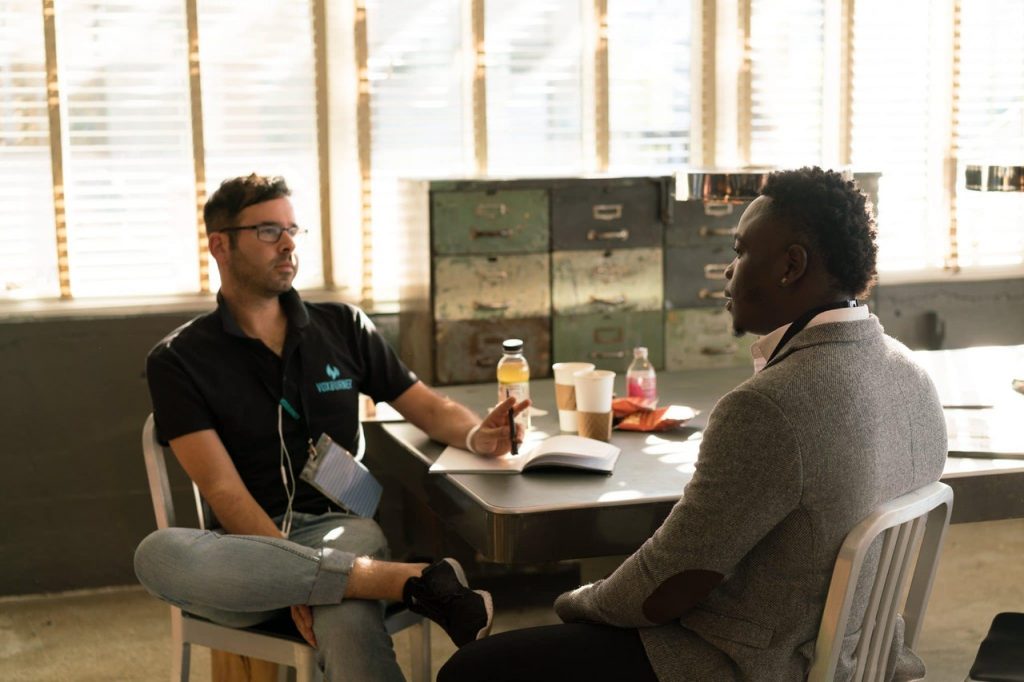Australia: How to get an internship or job Down Under

Australia is one of the top destinations when it comes to internships and studying abroad. However, the first step to realizing your dream of going Down Under is to ace the application process. To give you an idea of Australia-specific CVs and interviews, our German partner access.de asked one of our authors, the Australian career expert Gavin Redelman, what to consider when it comes to a successful application process in Australia. Don’t miss this insider information!
What differences should a foreign student consider when applying to Australian companies?
The Australian job market is extremely unique and different to other job markets from around the world. A well written, formatted and presented Australian resume can be your ticket to finding an Australian job. The most important tip I can offer is to spend as much time as possible ensuring you address EXACTLY what the Australian employer wants. For example, if the job advertisement lists certain duties for the job, make sure you incorporate these duties into your current resume. If the job requires excellent customer service skills, provide examples about how you have provided excellent customer service in your past experience.
What should students consider when referees are required?
Referees do not belong on the Australian resume (unless specifically stated) and will only be required following the job interview. It is important however that you have spoken to your referees and they are ready when required.
How can a foreign student explain his or her achievements especially diplomas that do not have an exact equivalent in Australia?
The best advice is to research the equivalent degrees offered in Australia and include this alongside your degree on your resume. For example I recently worked with a young lady from Germany who had earned the degree “Dr. rer. nat.” This in Australia is equivalent to a PhD.
How do companies take on job interviews with foreign candidates?
There are many various ways companies can perform job interviews with foreign candidates. Phone interviews and Skype interviews are a common and cost effective way to conduct the first stage of the interview process. Before you begin your phone or Skype interview make sure that you are confident in your understanding of the position you are applying for and the company you are applying with. Do extra homework on the company’s history and research recent company news. Preparation is the key and will make a great impression on your interviewers.
How does a student follow up after the interview?
Follow up with a letter or email thanking the interviewer for their time and re-expressing your desire for the role. A thank you letter or email not only reiterates your desire, but continues the rapport you already built during the interview.
How can foreign students get in contact with people in Australia?
Networking is key to gaining contacts in a new country. Use online networking websites such as LinkedIn to make contacts with as many people as you can. Talk to people in your industry and find out information about the types of roles you wish to apply for in your new country. This way you can incorporate this into your resume and interview preparation. The more you understand about your new country, the greater chance you can prepare yourself for finding a new job
What else besides a resume do students need when applying for a job in Australia?
Every job seeker will also be required to write a cover letter. The cover letter is an introductory letter to accompany the resume or curriculum vitae. The cover letter is not a job application, nor should it be a part of the resume or follow the conclusion of the resume.
In the competitive job environment where first impressions count and the time we have to impress the potential reader is becoming shorter and shorter, the most effective way to ensure that your application stands out from the competition is through a professionally written cover letter. There is, however, a fine line between a cover letter that enhances your application and a cover letter that can actually do you a disservice.
What are the biggest mistakes you can make when preparing an Australian resume?
Top 8 mistakes to avoid:
- Avoid Abbreviations! (Going 2 c clients). This is a resume, not a text message. Make sure you use correct words and proper sentences.
- Personal Information: Leave off anything related to hobbies or personal interests. If it doesn’t relate to employment it doesn’t belong on a resume.
- Graphics / Artwork
- No Dates: Do not make the reader have to guess – Include dates
- Too Long
- Lack of achievements / highlights: Leaving off your achievements is the best way to get your resume deleted. Alternatively, including value-added achievements is the best way to get your resume put on the top of the list.
- Irrelevant information
- Grammar mistakes and typo
If you want to learn more about the application process in Down Under and elsewhere you can have a look at Redelman’s three popular career eBooks “Interview Secrets Exposed“, “Resume Secrets Exposed” and “Career Secrets Exposed“.
Exclusive to Bookboon: Get a 10% discount off any resume service. Find out more here!



